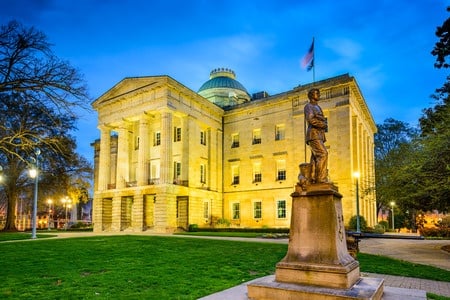Massachusetts’ Highly Touted Push To “Significantly Reduce” Affordable Housing Vacancies Barely Made A Dent
Vacancies in Massachusetts’ public housing decreased by only 72 units out of 2,300 over seven months.
This story was originally published by ProPublica in cooperation with WBUR
Every night, Graciella Carter puts her 5-year-old son to bed with the same routine. She tucks Oscar under some blankets, kisses and hugs him, and stays with him until he drifts off to sleep, no matter how long it takes.
But nothing else is routine. They stay in a different place almost every night. The bed may be a sofa in a friend’s or relative’s living room anywhere in western Massachusetts. Carter usually has to sleep sitting up, at the end of the couch or on a nearby chair, leaning on her fist like a pillow.
Carter and Oscar have been couch surfing since being evicted from their Holyoke apartment in October. She said she fell behind on the rent because she’d been injured in a car accident and couldn’t work for several months. Oscar had to give away his beloved dog, a poodle-Chihuahua mix named Luna. When friends didn’t have room for both Carter and Oscar, she would sit by his side until he fell asleep and then spend the night in her car — until it was repossessed a month ago. Now she gets rides from friends or takes buses, hauling around a pair of laundry bags with their clothes and other necessities.
“It’s hard,” she said recently while playing with Oscar in a small park in downtown Northampton, 20 miles north of Springfield. “It’s just bouncing around.”
The 28-year-old, a high school graduate who has worked off and on as a certified nursing assistant, has been waiting for a state-subsidized apartment for nearly five years, since Oscar was a few months old. She has applied for state-funded housing in 11 cities and towns without getting a single placement, even though some of those communities have vacant family units.
To the disappointment of the Carters and other families desperate for refuge from the winter cold, the state failed to achieve its goal, proclaimed last September, to “significantly reduce” vacancies in state-subsidized public housing by Jan. 1. The “90-day push” followed an investigation by WBUR and ProPublica, which revealed that almost 2,300 state-funded units were vacant, despite a waitlist of more than 180,000 people. The findings came as the number of homeless families increased sharply, prompting Gov. Maura Healey to declare a state of emergency, which remains in effect.
Yet the 90-day initiative barely made a dent in the vacancy totals. According to the latest data available, the number of vacancies has dropped by only 72 since July. As of March 1, the figure stood at 2,219, with most of the decline occurring in the past two months after WBUR asked why the state hadn’t made more progress. More than three-quarters of the vacant units have been unoccupied for at least 60 days, the deadline that the state gives local authorities to fill a unit. Apartments that remain empty beyond that time limit need a state waiver or the local authority may face fines.
The state also has not fixed key problems that contribute to vacancies, WBUR and ProPublica found. It still doesn’t screen applicants for eligibility when they first apply for housing, and it allows people to sign up in as many as 230 places, including towns too far away for them to realistically relocate to. Almost 13,300 candidates for priority status, which is largely reserved for people in dire need of housing due to situations like fires, domestic violence or a condo conversion, are still waiting for a vendor hired by the state to determine if they are eligible and potentially bump them up the list.
In most states, low-income residents seeking affordable apartments rely on federal public housing or vouchers for private housing. Massachusetts has those options, but it’s one of four states — the others are New York, Connecticut and Hawaii — that also offer state-funded public housing. The state’s 41,500 subsidized apartments are in high demand because Massachusetts has some of the highest housing prices in the country.
Until 2019, local housing agencies in Massachusetts were responsible for maintaining their own waitlists for the subsidized units. That year, the state created a central list with the aim of making it easier for people to find public housing. Instead, the system has become a bureaucratic quagmire.
The waitlist “is not going to get fixed with iterative steps,” said John LaBella, president of HousingWorks, a Boston company that helps people find affordable housing. “It needs a fundamental redesign.”
Todd Wallack is a correspondent on WBUR’s investigative team.
ProPublica is a nonprofit newsroom that investigates abuses of power. Sign up for Dispatches, a newsletter that spotlights wrongdoing around the country, to receive our stories in your inbox every week. This story was co-published with WBUR.












